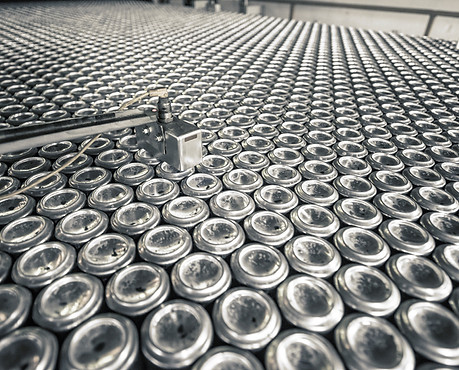Home / Industrial Applications / Aluminium Processing
Aluminium
Processing
A Unique Metal Requiring High-Performance Processing
Manufacturing trends are pushing more and more towards the use of aluminum in our daily life. This metal is now one of the most used materials in the world. Aluminum is a light, strong, easily machinable metal with unique features that have made it a preferred material in various industries such as transportation, energy and telecommunications. But primary and secondary processing of aluminum involves various challenges that require high-performance lubrication products to achieve the superior level of quality required by the aluminum market.
Working closely with aluminum manufacturers over the years, Magnus has developed a line of high-quality products to meet the many different challenges and requirements of the aluminum processing industry.

Wire Drawing
The market for electrical conductors has evolved over the years. Aluminum and copper alloys are used to produce different types of electrical wires for the power, automotive and telecommunications industries. The appropriate lubricant should be selected based on the application.
Pure oil, soluble oil, semi-synthetic or fully synthetic lubricant are available depending on the applications and processing requirement level. Our team can help you select the best technology.
Using the right lubricant ensures optimal lubricating and cooling properties. To improve the surface finish, specific additives are used to minimize the coefficient of friction without having to increase the viscosity or the oil content. Clear synthetic technologies are now available to reduce residue, improve equipment cleanliness and increase lubricant performance.
Aluminium Rolling
Aluminum and many other metals can be rolled by being heated and repeatedly passed through a set of rollers, which reduce their thickness according to a precise tolerance. Rolling mills can have different designs for processing slabs or ingots for producing sheets of different thicknesses. Lubricants play an important role in preventing metal from sticking to rollers, ensuring good surface quality, and reducing roller wear. Oil emulsion, pure oil or fully synthetic products can be used depending on the metal being processed.
For the aluminum rolling process, Magnus can determine the best possible lubricant and provide technical support to identify and implement new technologies in factories. We also offer comprehensive laboratory analysis services to monitor lubricant performance.
Anode Release
Agents
Aluminium
Continuous Slab
Casting
During the manufacture and compacting of anodes for use in electrolysis tanks, a mold release agent is necessary to prevent anode breakage and ensure optimal compaction. For vacuum compaction processes, it is important to use compatible high-performance mold release agents to prolong the life of seals.
Molten aluminum from the furnace is poured into continuous casting molds and cooled by spraying with cooling water. Primary aluminum factories can prepare billets or ingots to supply foundries that make various parts from different alloys.
Casting lubricants are used during this process to ensure good surface quality and prevent the aluminum from sticking to the mold. Good thermal stability and a high viscosity index are required.
Different lubricants are available depending on the viscosity required and the type of casting process. Boundary and antioxidant additives prevent oil from burning and generating carbon on the mold surfaces.
Aluminium Sawing
A lubricant is used to ensure a constant lubricating film to prevent aluminum from sticking to saws or blades. It improves surface finish, sawing speed and tool life. The cooling property of the lubricant is also important in preventing aluminum chips from melting onto the cutting surface.
There are specific lubricants for specific sawing processes to maximize performance and meet customer needs. Ashless products are available for sawing billets prior to extrusion. Synthetic additives are used to improve overall performance. The Magnus technical support team is available to help you optimize your sawing process by selecting the right lubricant.
.png)